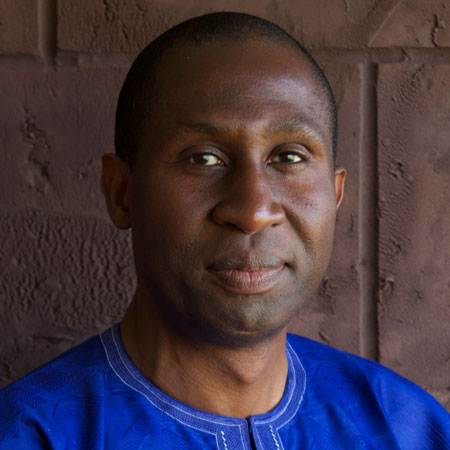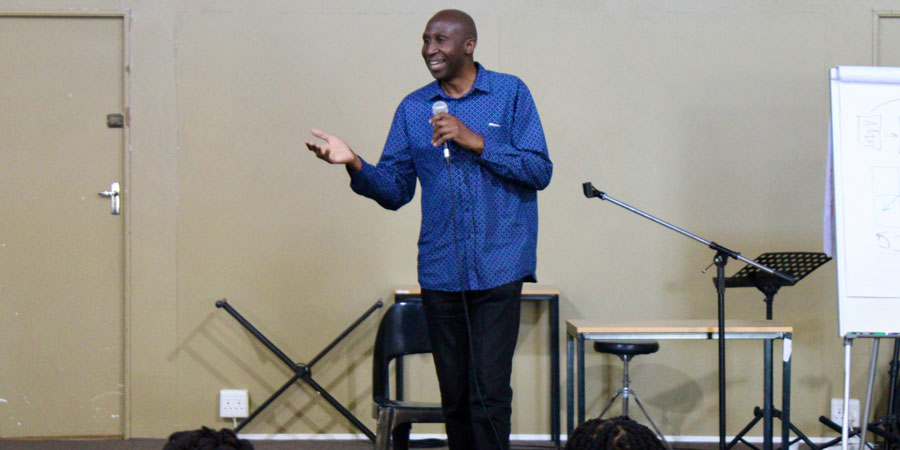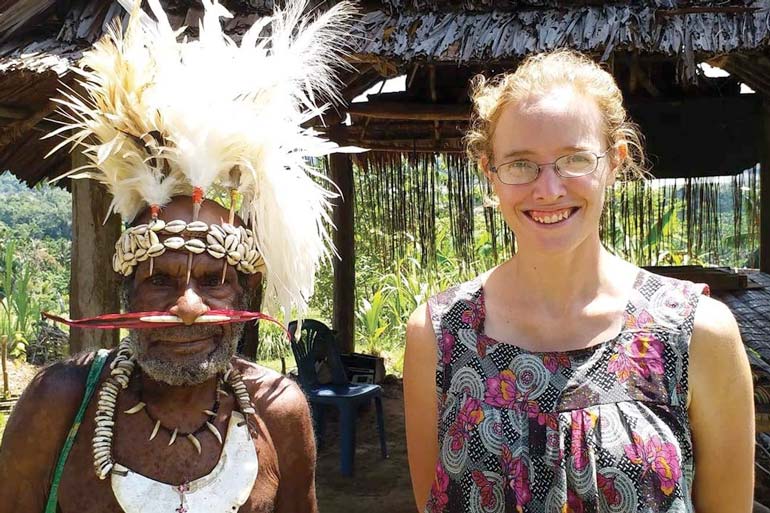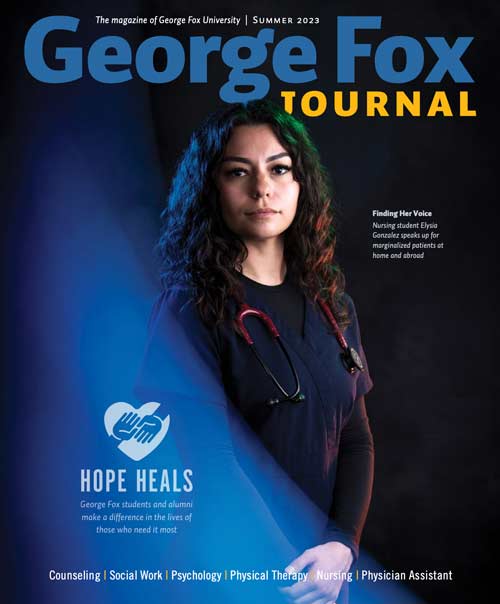
‘Go Serve Your People’
Portland Seminary alumnus Henry Gwani answers God’s call to serve and educate the marginalized in South Africa, with the hope of building up an ‘antifragile’ mindset
Living and working in the homeland of Nelson Mandela, whose heroic actions helped end apartheid in South Africa, Henry Gwani is intent on fueling the fire of a different kind of revolution.
His isn’t a quest of ending oppression or fostering racial reconciliation, but of training up missionaries to serve the poor, share the gospel, and create an educational institution that perpetuates sound biblical training long after his work is done.
In short, Gwani hopes to establish a formal institution that specializes in Christian leadership courses by 2026 and to train up 300 indigenous missionaries by 2030.
“One of the major reasons why there’s so much poverty in Africa is a lack of functional education and skills,” says Gwani, a student in Portland Seminary’s Portland Seminary’s doctor of leadership in global perspectives program. “I’ve had the privilege of visiting the U.S. and seeing what can happen when a high-quality education is coupled with Christian values and a living relationship with the Lord. This makes such a big difference in terms of quality of life. Seeing that has really motivated me to see how we can integrate a verbal presentation of the gospel with vocational training.”

Gwani has dedicated more than 20 years of his life to the people of his continent. A native of Nigeria, where he grew up in a middle class home, he started his ministry in 2000 with Youth With a Mission and, later, Mercy Ships. He worked as a chaplain aboard two ships before relocating to South Africa in 2015, moving to the rural eastern province where Mandela was born.
Gwani has since relocated to the urban sprawl of East London, where his work is threefold: ministering to the poor through evangelism, discipleship, vocational training, and addressing mental health needs, primarily in the low-income community of Duncan Village; visiting incarcerated individuals with his wife, Mampho; and serving as a teacher, counselor and frequent speaker at his local church.
His biggest desire: to see Africans – particularly those who are marginalized – experience Jesus in all of his fullness.
“Traveling across this continent, seeing poverty in a way that I never ever thought existed, has been life-transforming for me,” he says. “The paradox for me was to see that God has blessed Africa with so many natural resources – a lot of metallic minerals, like gold, platinum, as well as industrial minerals. We are also one of the world’s largest producers of diamonds.
“On the other hand, Africa is considered the poorest continent in the world. That is the paradox, and I find it confusing. So in thinking about this and praying about it, I believe that the more Africans come into a living relationship with Jesus, adopt a biblical mindset, and begin to implement things like a strong work ethic, we will see greater transformation.”
Gwani’s desire to see Christ move among his people is matched by his passion for deepening his own spiritual walk. He credits the seminary’s curriculum, the diversity of perspectives in his cohort, and the leadership of the program’s mentor, Dr. Jason Clark, for helping spur his growth as a disciple of Christ.
“It’s really broadened my thinking to not look at leadership from a purely theological perspective, but to recognize that there is a very significant economic element to leadership, a political element to leadership, and also a very psychological element to leadership.”
One recent book his cohort read, Antifragile by Nassim Nicholas Taleb, particularly resonated.
“I’ve heard about resilience, I’ve heard about people being able to cope to survive through difficult circumstances, but I didn’t know there was anything like being antifragile,” Gwani says. “The way the author described it, if people are resilient, they’re able to face difficult circumstances and survive. But if they’re antifragile, they don’t just face a difficult circumstance, they thrive and do better through that difficult circumstance.”
Like the heroes of his newly adopted homeland – Mandela and Desmond Tutu among them – Gwani wishes to adopt an antifragile mindset that translates into seeing souls saved and lives transformed.
Gwani has experienced firsthand the power of the Holy Spirit. In one instance, he led a 60-year-old Muslim man to Christ after the man had experienced the successful removal of a nearly five-pound tumor – one so large it appeared he had two heads.
“I realized that, if not for the grace of God, that could have been me with that tumor and facing death. I think God used that as a turning point in my life to say, ‘Look, go serve your people.’ Some people will hear what you say and may not respond, but your responsibility is to just share and leave the rest in God's hands.’”
Having the fruits of his ministry watered by sound biblical training has given Gwani a renewed sense of purpose and optimism. In particular, the diversity of his cohort – which includes an Asian American, a South African working in the Middle East, a lead mentor from the United Kingdom, a Korean-American faculty member, a Kenyan, and an individual who worked extensively in Poland – has broadened his understanding of what it means to serve Christ with a global perspective.

“It’s a beautiful mix of cultures and perspectives,” he says. “My eyes have been opened to the fact that God uses people who come from different Christian traditions in very significant ways. It’s important for me to humble myself and receive input from these individuals, and also to realize there's a very significant psychological element to our Christianity.
“Mental health is really, really huge. And the Bible speaks very deeply into that. And truly I would say that listening to Jason as a lead mentor and some of our colleagues who have had training in psychology has really helped me to appreciate this.”
Perhaps most significantly of all, Gwani’s world has been enlarged – and his faith challenged.
“All these [international] perspectives have really helped to shape my thinking and to appreciate the fact that this God whom we serve is a great God, a global God. He is the God of all cultures and wants to redeem all cultures.
“What a great opportunity to be able to partner with him and to experience some of his people like those in my class, to see what he's doing, not only in South Africa, but in so many countries around the world. So I consider that a huge, huge benefit – a huge blessing.”
Looking for more?
Browse this issue of the George Fox Journal to read more of the stories of George Fox University, Oregon's nationally recognized Christian university.




